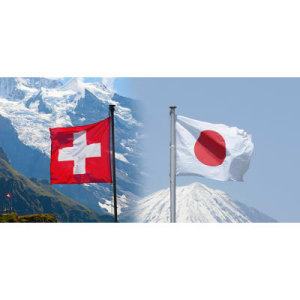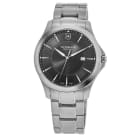Swiss Watches vs. Japanese Watches

Historically, Swiss watches were considered the best watches. However, during the mid-twentieth century a new country emerged as competition to the Swiss monopoly. This country was Japan. In our times, a consumer who wishes to purchase a high-quality watch generally looks for one made in Switzerland or Japan. Often the consumer hears that Swiss watches are the best. Certain they tend to be more expensive. Top luxury brands like Patek Philippe watches and Vacheron Constantin are made in Switzerland, but does that mean that Swiss watches are better? This article will explain what the pros and cons of Swiss and Japanese watches are.
The Japanese advantage
Although Swiss watches are considered more luxurious than their Japanese counterparts, Japanese timepieces are known to be more innovative. For example, it was Seiko that allowed quartz watches to be less bulky and heavy. Their development of smaller and lighter watch batteries was crucial. In fact, during the twentieth century, when quartz watches rose in demand, the Japanese watch industry ascended and the Swiss watch industry declined, because Swiss watch companies refused to make quartz watches. They preferred mechanical and automatic watches, following their hundred-year-old watchmaking tradition.
How Swiss watches differ
Japanese watches are made with an in-house mechanism or movement (meaning that the mechanism is created by the company itself). Swiss companies, by contrast, typically incorporate a generic “ebauche” mechanism created by an independent manufacturer. This manufacturer, which is located in Switzerland and has Swiss Standards of production, supplies the raw mechanism for most Swiss watches. Importantly, a piece like Patek Philippe watches cannot be called Swiss if the movement isn’t made in Switzerland.
There are several advantages of the ebauche method. First of all, there is a guarantee that all Swiss watches have good movement. Additionally, the watch companies are free to focus on design and the quality of other parts of the watch. In short, the ebauche tradition allows for specialization. The downside of the ebauche method is that the watches lack a unique movement. As a result, many top luxury Swiss brands reject the ebauche method and they produce their own movement. In general, many Swiss watch companies are trending toward in-house movements. Moreover, Swiss companies are starting to follow the Japanese business models. Japanese watch companies are very efficient but they also have a lean budget, which is why Japanese watches are usually less expensive.
Conclusion
Both Swiss Made and Swiss Movement watches are great. However, whether you decide to purchase a Swiss watch or Japanese watch will depend on what kind of timepiece you want. If you want something that is more budget friendly and yet good quality, Japanese watches are an excellent option. On the other hand, if you wish to own a status symbol, then a Swiss-made watch is something you should consider.









